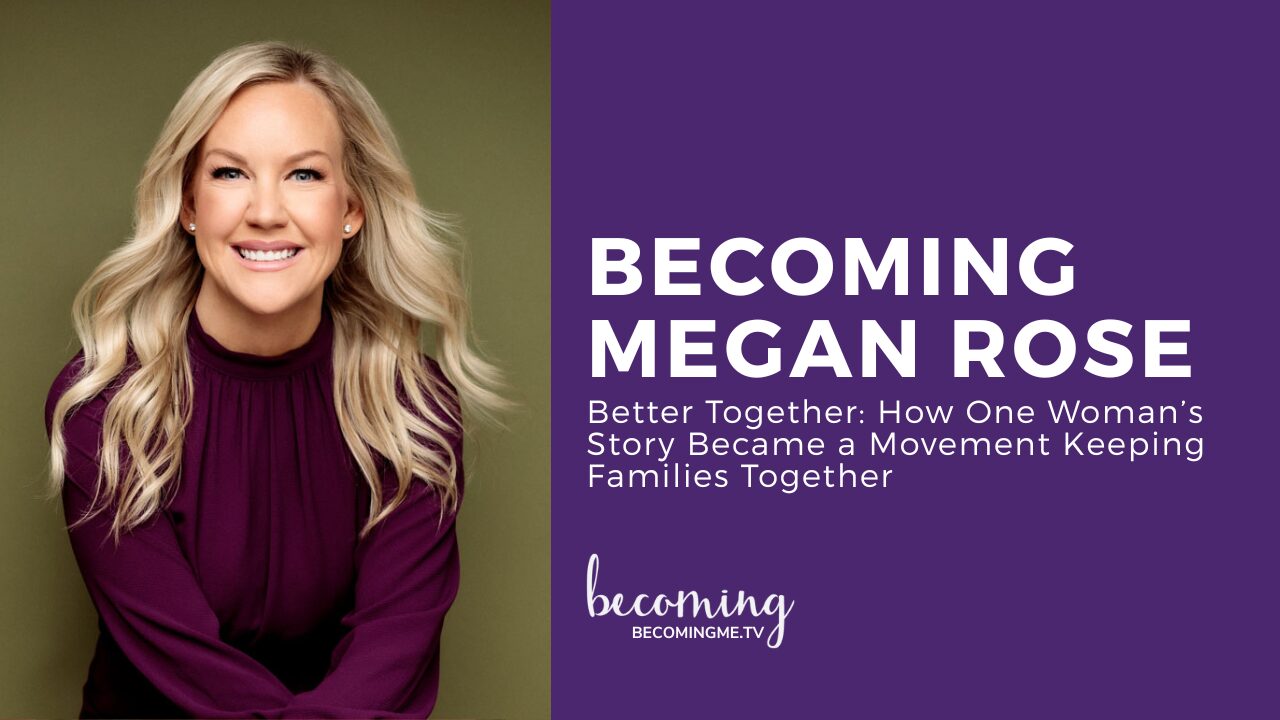At 14-years-old, K (let’s call her) didn’t have the easiest childhood. Growing up, her dad was absent and her mom was a drug-addict. When she was 8-years-old, she was adopted by a family, but 6 years later, she was taken out of their home due to the physical and sexual abuse she suffered with them. With nowhere else to go, she was homeless, spending her days walking around town, trying to survive. There, she met a man who offered her help—a home, a friendly face, a place to belong.
When he finally took her to his house, she found herself surrounded by other women and girls, all who were trapped in prostitution. She looked across the room and saw her own cousin, now addicted to drugs to cope with the life she was living. Night after night, K faced unimaginable atrocities until relief and rescue finally came in the form of a police officer who took her to jail to get her to safety. Once there, the authorities took down her story, went after her traffickers, and worked to help her get aftercare services like counseling, healthcare, and education. Even now, she still struggles to live a normal life, but she has come a long way and is working to help other girls just like her.
At first, without context, it’s a little difficult to tell where this story is from—maybe Moldova or Russia, South Africa, India, Germany? Maybe even New York City or Los Angeles? It seems like a story that should be removed from our everyday lives, happening far away in a place where crime is high, poverty is rampant, and prostitution is common, if not accepted by society. The reality is that this story is about a girl who grew up only 50 miles from my hometown, just down the road from me in the city I live in now—Pittsburgh, Pennsylvania.
This is a reoccurring story, running through the lives of almost 1 in every 6 runaway or throwaway children in the United States, happening in our own backyards—not just in foreign countries, huge cities, or sweatshops and large-scale farms. The true scope of trafficking is impossible to measure, but in the past 6 months alone, over 1,600 trafficking cases have been identified in the US, most of which involved trafficking of women for sex. And that is only the cases that were called in, investigated, and identified as trafficking—so many more slip through the cracks. In all likelihood, most of these women have probably been in that life since their early- to mid-teen years. The average entry age into sex trafficking is 12 to 14 years old, and about 75% of child trafficking victims are now being advertised for and sold online.
The truth is that, especially in our country, sex trafficking victims look a whole lot like less the girl from Taken, kidnapped because she was acting carelessly and wildly in a foreign country, and a whole lot more like young girls from broken homes (rich or poor) who just want someone to validate their worth and show them love. When family, friends, and mentors don’t fill that gap, pimps and traffickers can quickly and easily step in to fill the hole, showering the girls with gifts and compliments until they can get full compliance. Human trafficking stems from broken systems failing vulnerable people and broken people taking advantage of them.
So maybe now you’re asking, “What can I do about this?” It’s easy to think “nothing” is the answer to that question. It seems like such a huge problem, and in reality, a lot of things need to change in order to really make progress, but that doesn’t mean you can’t or don’t have a role. As Christians, we should care because we are called to care. We are called to live like Christ, who acted in justice and who loved and showed mercy to the most vulnerable. Micah 6:8 says, “He has shown you, O mortal, what is good. And what does the Lord require of you? To act justly and to love mercy and to walk humbly with your God.” There are so many ways we can do this! While giving money to reliable organizations is always an option, here are a few other suggestions for ways that you can begin to make a difference:
Think small.
I know, this sounds totally counterintuitive to everything you’ve been told, but this is really one of the key points to not getting overwhelmed with these big, weighty issues. Keep in mind that you can’t do it all, but also remember that what you can do, however small, is extremely important. A good anecdotal reminder is the Starfish Story. If you’ve never heard it or read it, you definitely should. For me, prayer is in this category of “thinking small,” which is really thinking big—remembering that my God is bigger than any problem on this earth and that His heart is breaking for these victims!
Shop smart.
Many organizations have shops that financially support their anti-trafficking work and safe houses, and many companies exist to raise money to send to various organizations for this cause. While sex trafficking is a huge issue in this country, Americans also contribute a lot to the labor trafficking industry. Shopping can make a difference for both of these areas of trafficking. When consumers demand that the companies care, we can really start to change the lives of millions of trafficking victims around the world. Try paying attention to who is making the things you buy. Are the clothes you wear made by children in sweatshops or women who are severely overworked and underpaid? Is your food harvested by unpaid workers who can’t leave because their employers have them trapped in debt? Almost every industry is affected by labor trafficking somehow. You can learn more about this at free2work.org and slaveryfootprint.org.
Volunteer!
Volunteer with a local trafficking organization, or join a program that invests into the lives of local kids and teens—show those who are most vulnerable to trafficking that you care about their well-being and that you think they’re worth something! Anti-trafficking programs often need volunteers in every area of their organization—safe house, grant writing, running fundraisers. If you’re more of a policy and education-oriented person, find out how you can get trained to be able to teach others to identify trafficking and know what to do for a victim. You could also write to a congressman or sign an online petition about an anti-trafficking bill or policy. Whether you drive “taxi” for a safe house or are lobbying your state politicians, volunteering is one of the most hands-on ways to make a change.
At the bottom of this post is a list of resources that can help you learn more and get involved. Pick something; do something! Whether you simply commit to praying for this issue once a week or decide to jump right in and volunteer, the one option we, as Christians, don’t have is to ignore it. A quote by William Wilberforce, who authored the book Real Christianity which calls Christians to speak out against injustice, says, “You may choose to look the other way but you can never again say that you did not know.”
List of local and global organizations (aka places to volunteer!):
- globalmodernslavery.org
- Google the place you want to find one!
List of educational & awareness resources:
- polarisproject.org
- traffickingresourcecenter.org
- slaveryfootprint.org
- free2work.org
- notforsalecampaign.org
- hopeforjustice.org
Shops that support trafficking survivors or anti-trafficking organizations:
- Starfish Project https://starfishproject.com
- Love Gives Way (helps people find ways to have their wedding day support anti-trafficking efforts) http://www.lovegivesway.com
- Thistle Farms (I can vouch for their lip balm and essential oils!) http://thistlefarms.org
- Purpose Jewelry http://www.purposejewelry.org
- UNCVRD Jewelry http://www.uncvrdjewelry.com
- The Hope Bag Mission http://thehopebagmission.com
- Elegantees http://elegantees.com
- Freeset http://freesetglobal.com
- Malia Designs http://www.maliadesigns.com
- Sari Bari http://saribari.com
- Good Paper http://www.goodpaper.com
- Mulxiply http://www.mulxiply.com
- Sudara http://www.sudara.org
- To The Market (goods made by survivors of multiple tragedies, including human trafficking) http://www.tothemarket.com
- Made for Freedom http://madeforfreedom.com
- Made By Survivors http://www.madebysurvivors.com
- Relevee http://relevee.com
Prayer guides, liturgies, & devotionals for human trafficking:
For more information on organizations, places to donate, books to read, or anything else related to this topic, connect with us, and we will connect you to resources!

